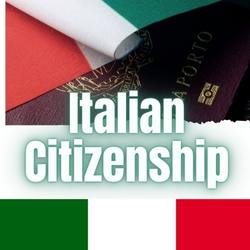
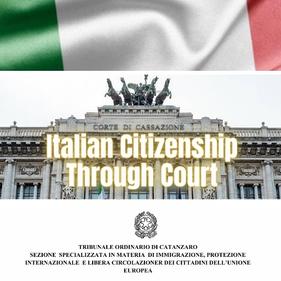
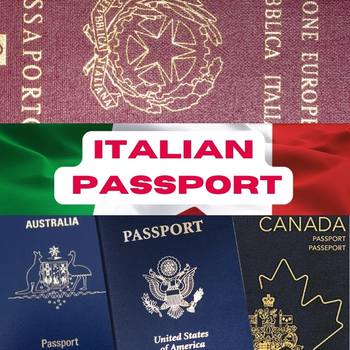

Italian citizenship by descent is the legal recognition of the link between the person and the State, providing full political and civil rights and duties towards the Italian State, based mainly on ius sanguinis. It is a process that can be done directly in Italy without the need to leave the USA or another country, through Italian lawyers via the Italian courts.
Italian citizenship in court is the recognition of Italian citizenship by means of a judgment handed down by a lawyer registered with the Italian Bar Association through a judicial process.
Italian citizenship is a right ius sanguinis for those who are recognized by their Italian descent and a concession of the State for those who meet the legal requirements such as citizenship by marriage and residence.
As a result of large-scale immigration, the USA is one of the countries with the largest number of Italians outside Italy and you have the right to apply for it and be recognized as Italian for all civil and political purposes.
Dual Italian citizenship. It is passed down from father to son, regardless of place of birth or residence. A child born abroad to an Italian citizen is also an Italian citizen, and there is no difference between the children of an Italian father or mother born in Italy and those born in the USA.
The first way to do this is to hire a specialist Italian lawyer to represent you and your family in Italy so that you can carry on your normal activities while the process is being carried out. Other ways are via the Italian Consulate, but the queues can reach 12 years, or by direct residence in Italy, which requires time, money and the position of the Comune.
Dual Italian citizenship has several advantages. It allows access to health services, education and work in Italy. Italian citizens can also live in other European Union countries without needing a visa. In financial terms, it is beneficial as a right to inheritance and social access. It means having diplomatic and consular protection anywhere in the world.
Hundreds of families have already been assisted by the Italian law firm. Positive rulings in court cases involving maternal and paternal citizenship, consulate queues and recognition of length of residence in Italy.
Citizenship through the courts is a legal means formalized by res judicata, passaggio in giudicato, providing security in the recognition of citizenship.
To obtain Italian citizenship more quickly, it is important to gather all the necessary documents, such as birth certificates, marriage certificates of the dante causa and his descendants.
Our team is made up of Italian lawyers who work on a daily basis in judicial proceedings before the Courts of Appeal.
In addition, clients are also represented by Valerio Piccolo and Andrew Montone, Italians lawyers specializing in Italian citizenship and qualified since 2013 in the albo speciale. It's a great benefit for our clients that all the stages of recognition are carried out in one place. We are in the heart of Milan.
The judicial Italian citizenship process offers advantages and facilities where our Italian law firm prepares the documentation for your representation in Italy. It's a process that brings security and convenience, as it allows recognition while the client is still in Brazil or living abroad. It also allows family members to take part in the process, so that costs and legal fees can be shared and direct contact can be made with the Italian lawyers, informing them of the status of each stage of the process.
Have you ever thought about becoming an Italian citizen? Know that it opens up an opportunity to change your life, work and study, as well as the main value that is the link with your Italian origin.
During our work, you and your family will be in contact with our team of lawyers who will always be available to provide clarification. We serve Americans and citizens of other parts of the world such as England, Ireland, Canada and other countries recognizing Italian nationality.

Via Materna
This is a legal recognition process in which we see the son or daughter of a woman who was born before 1948. The process via materna is justified because before 1948 women were not recognized for transferring rights to their children. Despite the Italian Constitution coming into force on January 1, 1948, the right to recognition does not occur automatically at consulates or administratively in Italy.

Italian Citizenship Against the Queue
This is a basis in fact and in law (reasonable duration of the process) for us to file a lawsuit directly in Italy due to the lack of vacancies in Embassies and Consulates in different parts of the world, as is the case in Brazil and Argentina.
Italian consulates have waiting lists that can reach 15 years, preventing descendants of Italians from having their rights declared and recognized. These rights are provided for by law.

By Marriage or Matrimony
Can be requested by a foreign citizen who marries an Italian citizen. It is an administrative procedure requested if certain requirements are met: a) Residence in the USA: 03 years married (reduced period if you have children (including adoptive ones) b) Resident in Italy: for 02 years after the date of marriage. If the marriage took place before April 27, 1983, the woman is entitled to automatic citizenship. Our office assists interested parties and their families in this process through qualified professionals.

The documentation required for the Italian citizenship process is dealt with in Circolare n. K. 28.1 of 04/08/1991.
To facilitate the analysis of the law, we have separated it into 02 topics: a) Antenato Documents; b) Document of Descendants.
A) ITALIAN : Birth Certificates from the “Commune’ in Italian
1) Birth document of the candidate (which conveys citizenship) who immigrated from Italy, issued by the Comune where he was born (estratto dell’atto di nascita dell’avo italiana emigrato all’estero rilasciato dal Comune italiana ove egli nacque);

Italian lawyer specializing in Italian citizenship. He also acts in the Italian High Courts. Member of the Milan Bar Association

Italian, Brazilian and Portuguese Lawyer. Admitted to the Milan Bar Association in Italy. Lawyer registered with the São Paulo and Lisbon Bar Associations

Lawyer. Admitted to the Milan Bar Association. She is also responsible for requesting the processing of documents at Comune

Graduated in Law in Italy. Practitioner at Piccolo & Montone and active in document review, internal registration and rectifications. It also provides customer service

Applying for American and Italian documents. This is a very important stage. Talk to your family, collect documents from the archives in order to create a family tree that will give you clues to your dante causa.
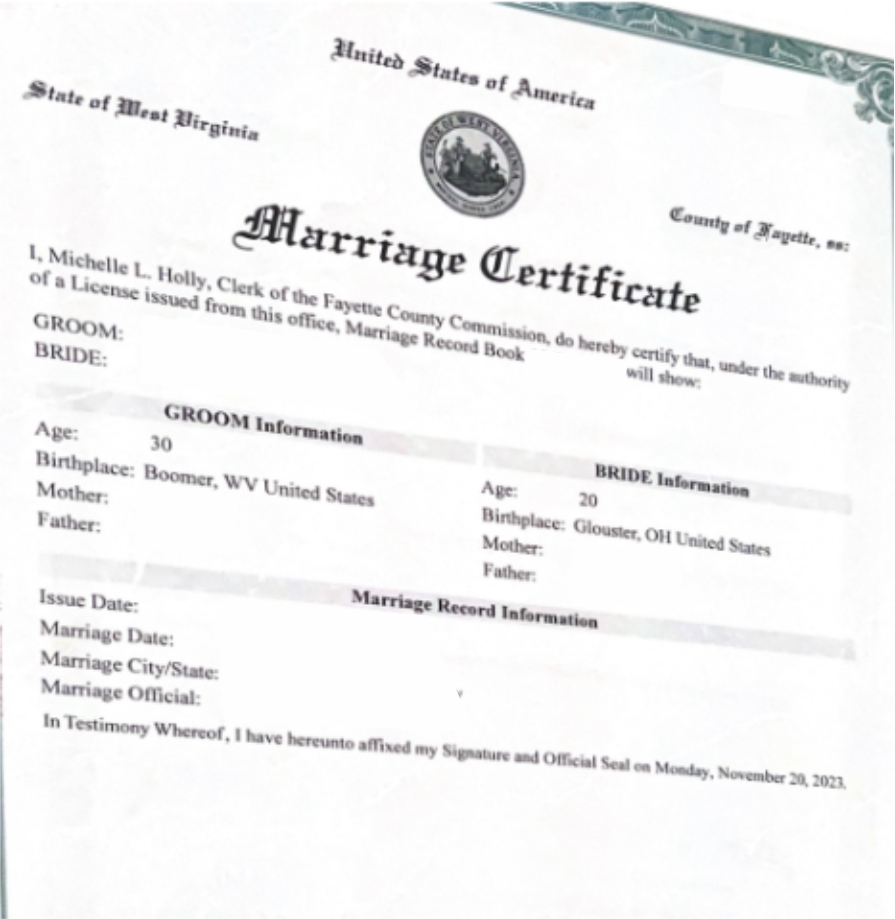
At this stage, the need for administrative or judicial rectification is analyzed. It is a very important stage. É comum que certos nomes sejam
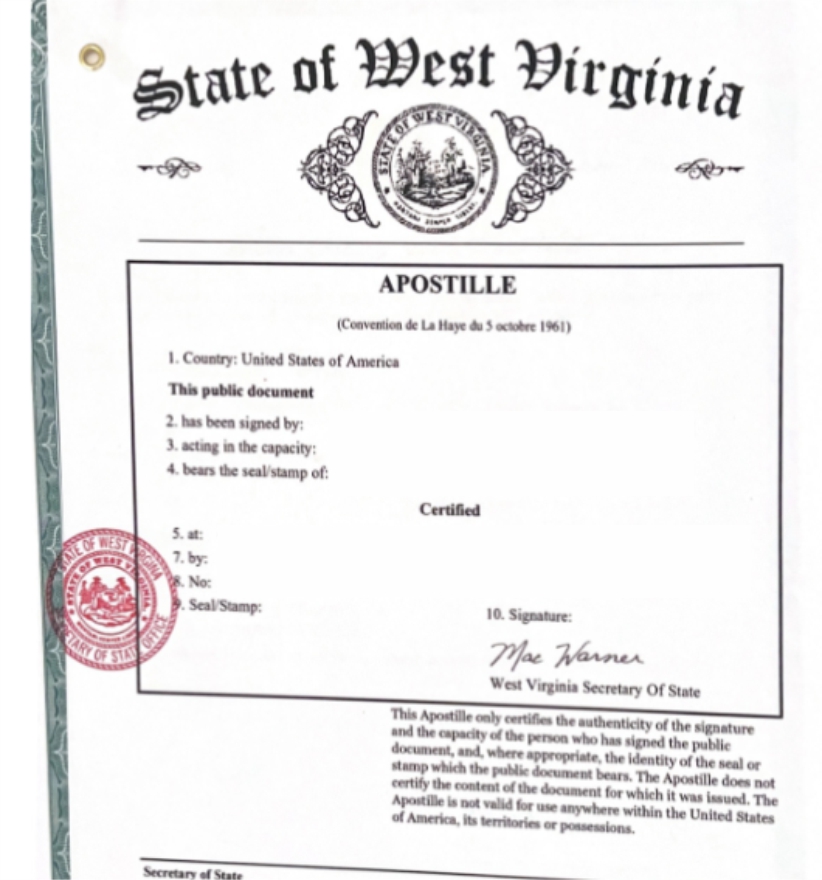
The purpose of the translation is to validate the identity of the texts according to the local language and the apostille validates that the document was issued by an authority.
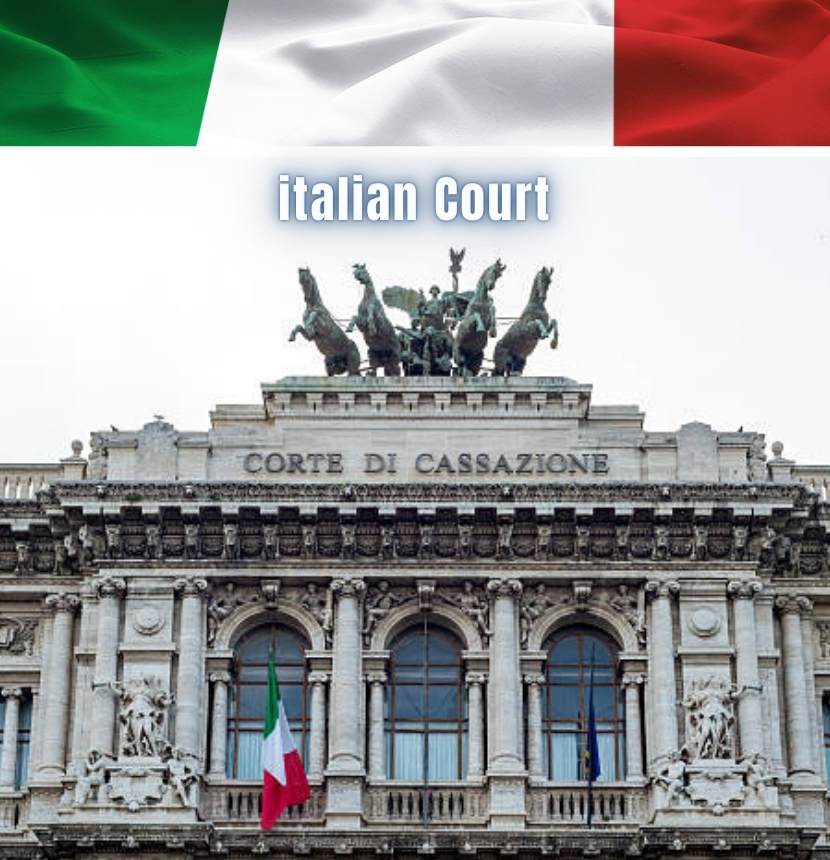
An action for recognition of citizenship is brought before the competent court. Here our legal team of lawyers will petition for your paternal or maternal recognition of citizenship.
Italian citizenship is the right granted by law or constitutionally declaring that a person is part of that state/nation. Such acquisition involves the acquisition of rights and subjects it to certain obligations. It is transmitted by descent iure sanguinis or can be acquired by fulfilling certain conditions such as marriage, length of residence and other requirements in Italy.
Transmission by descent also affects foreigners who are descendants of Italian citizens who emigrated abroad after 1861. To obtain Italian citizenship iuris sanguinis, you must prove to the consulate or the competent court in Italy that you are of uninterrupted descent from an Italian citizen who emigrated (uninterrupted descent), by presenting the required documents (documents necessary for iure sanguinis recognition).
You are entitled to the Italian line of descent jures sanguinis, and to the passport if the emigrant "l'avo" ancestor you are descended from (male or female) fathered children while still an Italian citizen and did not renounce or naturalize before the birth of the descendants.
The legal process takes place directly in Italy, one of the main reasons being the high demand from Italian Consulates. All applicants from the family concerned can apply for Italian citizenship.
ITALIAN CITIZENSHIP BY DESCENT
The child of Italian citizen parents is an Italian citizen (art. 1 law February 5, 1992, n.91), even if they were born abroad.
You can start by drawing your family tree and talking to your relatives. Your grandmother has many stories to help you build it.
From this comes the concrete possibility of second, third and fourth generation descendants, and beyond, of Italian emigrants being declared Italian citizens by filiation. Citizenship is passed down from father to son without generational limits; the fact that neither the applicant nor the ancestors have ever renounced Italian citizenship is a fundamental precondition.
Citizenship by Marriage
Marriage is another form of acquisition. It is granted by the Italian state and, once the requirements have been met, can be applied for in Brazil, Italy or at a consular office anywhere in the world!
You must be married, as stable unions are not recognized in Italy. It is also important to observe the legal time limit, which is 3 years and can be reduced if you have children.
There is also a specific requirement, which is a B1 level proficiency certificate in Italian. This is a medium-level Italian that you can start studying on various platforms or specialized schools.
The average duration is 2 years.
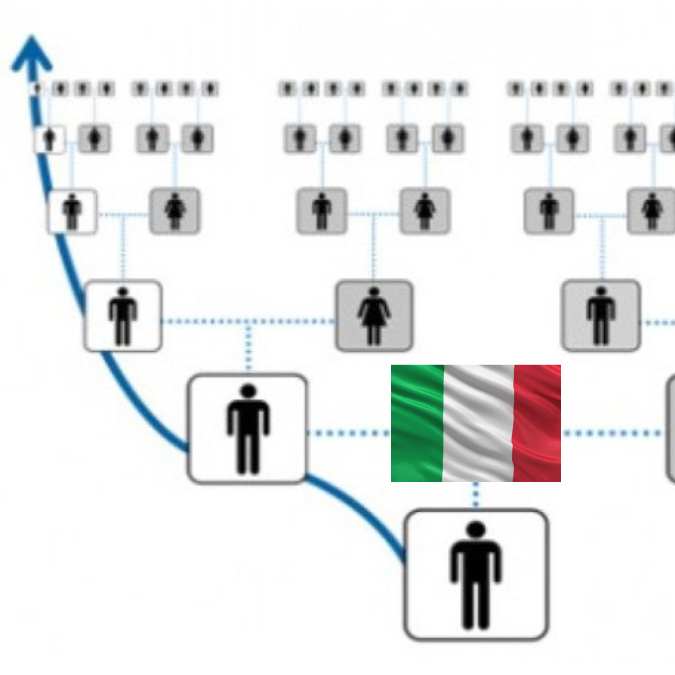 paternal citizenship
paternal citizenship
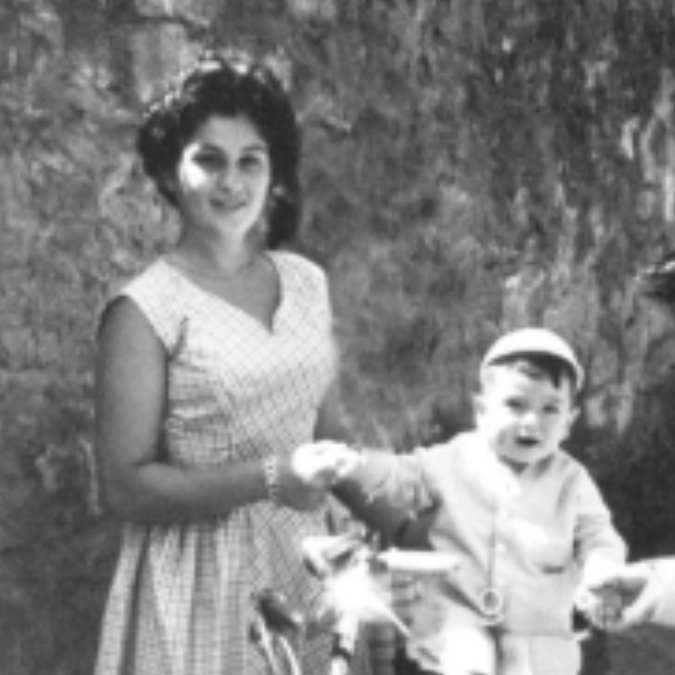 Materna line
Materna line
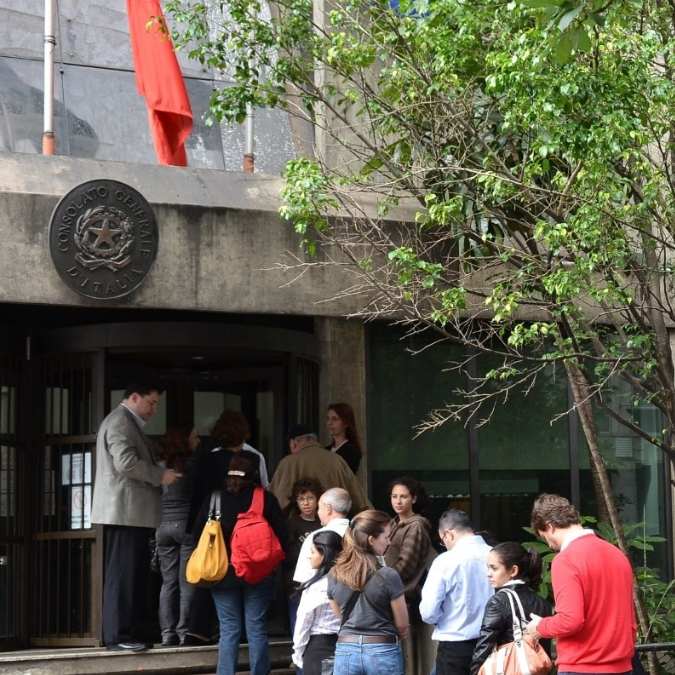 Italian citizenship Against Consulate Queues
Italian citizenship Against Consulate Queues
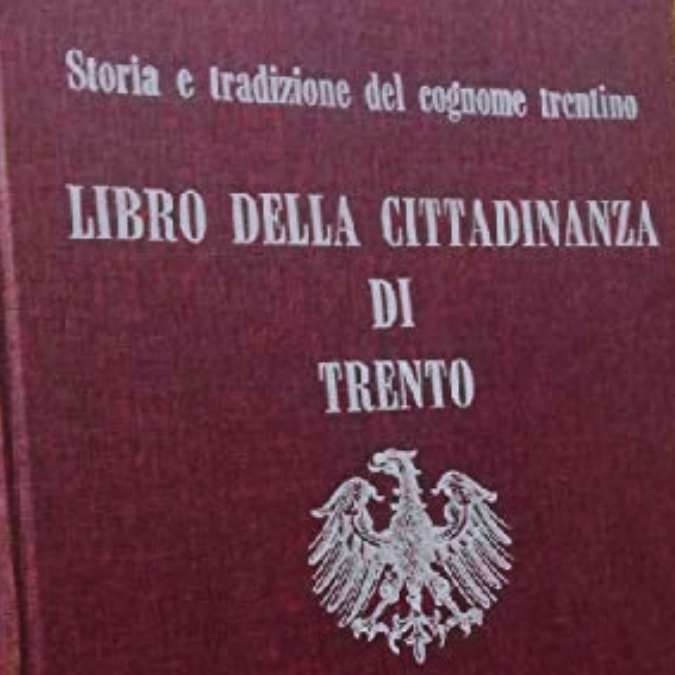 Trentinos
Trentinos
 Italian Citizenship By Marriage
Italian Citizenship By Marriage
 By Residency
By Residency
 Attorney dual citizenship specialists
Attorney dual citizenship specialists
Italian citizenship by residence
How to obtain Italian citizenship by residence is the first question a foreigner living in Italy asks. Well, among the requirements is legal residence.
Art. 9 of Law no. 91/1992, for the purposes of acquiring Italian citizenship by residence, provides for a minimum period of residence in Italy for non-EU citizens of 10 years (letter f);
But there is no model of citizenship by residence that is always valid; in fact, different periods of residence are provided for depending on particular situations.
For example, 5 years' residence is required for an adult foreigner adopted by an Italian citizen; the same period is provided for stateless persons and refugees.
Residence must be legal (i.e. comply with the laws governing the entry and residence of foreigners), registered (the period of registration is taken into account, as possession of a residence permit is not sufficient) and uninterrupted (there must be no famous "residence gaps").
Our office handles paternal and maternal cases, consulates, documents.
Citizenship through the courts
Recognition of Italian citizenship by court can be requested in two cases:
1. when it comes to descent through the maternal line, also called Italian citizenship via materna, when there is a woman whose child was born before January 1, 1948, the date on which the Italian Constitution came into force, which established and formalized the principle of equality between Italian men and women. In this case, it is necessary to file an action for recognition of Italian citizenship by descent before the Italian courts; at Italia citizenship is accompanied by our lawyers.
2. When the family line is male, or the child of a woman was born after January 1, 1948. In this case, in order to file a lawsuit, it must be shown that the Italian consulates do not act within a reasonable time, which violates the principle of reasonable duration of proceedings. Example: São Paulo, where you have to wait between 10 and 12 years to be summoned.
The judicial process involves certain pre-procedural phases and the judicial process itself. Due to the time taken at the Consulates, this takes several years. Legal action in the Italian courts has become the most effective way of preserving rights in order to receive a positive recognition decision.
The process is advantageous because the entire family group can participate, including non-paying children under the age of 16. Minors between the ages of 16 and 18 are considered applicants in the process.
Thus, due to the principle of the inafastability of the judiciary, anyone who feels aggrieved and prevented from having their blood right recognized can appeal and seek their right through the courts via Italian lawyers.
Once these and other requirements have been met, dual citizenship will be granted. The process is a means of demonstrating this right.
This right involves both paternal and maternal citizenship. We have offices in São Paulo - Brazil and in Milan.
OBTAIN ITALIAN CITIZENSHIP
The Piccolo & Rinaldi law firm and its team of specialist lawyers help foreign citizens to obtain recognition, as well as providing advice and practical assistance throughout the process. Our differential is that we deal directly with members of our team, answering all the necessary questions about the procedure. In recent years we have helped many Brazilians and foreigners to apply for Italian citizenship through the courts.
This experience allows us to have a unique and differentiated knowledge of each stage of the process and document analysis, reducing time wasted for an effective and timely judgment.
The judicial citizenship process is a summary cognizance procedure brought before the courts by an Italian lawyer, seeking recognition for applicants wishing to obtain Italian citizenship iures sanguinis.
In order to obtain Italian citizenship by court through an Italian lawyer, it is necessary to demonstrate the direct link between the dante causa and the descendants with full certificates, a genealogical tree, and a negative naturalization certificate showing that there was no voluntary naturalization in your line.
An Italian lawyer is a legal professional duly admitted to the Italian Bar Association (Ordine degli Avvocati) who works in the field of judicial recognition before the courts.
It is an activity directly linked to international and immigration law. He works to protect nationals in America and on Italian territory, assisting his client throughout the process.
The lawyer specializing in judicial Italian citizenship accompanies the process at all stages up to the transcription of the documentation at the Comune. We deal with assistance activities, offering both judicial and extrajudicial activities. If your family is looking for an Italian law firm that operates directly in Italy, our lawyers provide all the advice and assistance for American, Canadian, British, Irish and other citizens and foreigners who wish to obtain recognition that they meet the legal requirements to become Italian citizens.
what are the documents to apply for italian citizenship?
- Italian birth certificate of the ancestor;
- American certificates for the entire line of descent up to the applicant's Italian ancestor;
- Marriage certificate of the entire line of descent;
- Death certificates (if any);
- Negative Naturalization Certificate (declaration of Negative Naturalization) of the Italian ancestor;
- Sworn translation and apostille of America certificates.
Our services involve the technical analysis of all documentation for the initiation of proceedings before the courts. If you are of Italian descent, it is possible to obtain Italian citizenship by becoming an Italian citizen in the European Union.
The cost of the process depends on the method of acquiring Italian nationality. The processes involve different dynamics and situations, as well as the degree of complexity of the specific case. Thus, an Italian citizenship procedure by descent differs from an Italian citizenship procedure by marriage (matrimonio), which also differs from the procedure for recognition by residence on Italian national territory. The firm's legal team is available to analyze your specific case and that of your family. In addition, it is worth noting that in the iure sanguinis process, legal fees can be divided between the applicants, as well as being paid during the course of the procedure.
CIRCULATION: the right to move and reside freely in all the states of the European Union and to work.
PROTECTION OF DIPLOMATIC AUTHORITIES: Whatever country you are in,
PUBLIC TENDERS: If you meet the legal requirements, you can take part in public tenders.
NO VISA REQUIRED: having an Italian passport means you don't need a visa for many countries.
Health and social benefits: As an Italian citizen, you are entitled to health and social benefits
Long-term legal security: Offers long-term legal security.
It can be applied for directly at the Italian Consulates in your region. The problem is the delay and lack of structure. During this period, the client can take advantage of the opportunity to separate the documents for recognition via the courts, since they have a more flexible analysis in the Italian Courts and the duration is shorter compared to the Consulates. The reason for the lawsuits is the Italian Consulate's queues for exceeding reasonable time limits. When it comes to citizenship via the mother who was born and had children before 1948, the judicial route is compulsory.
The process in Italy is much more advantageous for several reasons:
a) Sharing the costs with the family
b) You are represented by a lawyer who specializes in the area;
c) The waiting time is shorter than at the Consulates
d) You don't have to travel to Italy or attend the hearing. Lawyers represent their clients in all proceedings.
e) Receipt of the judgment and birth and marriage certificates electronically
This depends on various factors, such as the court of jurisdiction based on the Dante Causa's place of birth. It can vary from 5 months to 2 years in the courts. Compared to the time taken at the São Paulo Consulate, it is at least 5 times less.
- Accepts the procedure via maternal and paternal;
- Recognition without leaving Brazil, where the client can continue working as normal
- Savings: No airfare or accommodation costs. The cost of the fees can be divided between family members.
No. The judicial process is carried out in telematic / face-to-face mode, and the client will be fully represented by the Italian lawyers at the hearings.
No. The surname does not transmit the right. The transmission occurs with the direct parental relationship called iure sanguinis.
This depends on the region of birth of the Italian immigrant. In some regions, the court makes its decision in less than a year, in others up to 1 year and 8 months.
The first step is to gather the necessary documents, building your family tree. Gather all the documents you need: birth, marriage and death certificates. Check the certificates for any indication of where the immigrant was born in Italy. The documentation must be sent to our experts for analysis. The process will take place through the courts and will then enable the Italian passport to be issued. Our lawyers will handle your case directly in Italy.
Yes. American law does not prohibit the recognition of Italian citizenship jure sanguinis